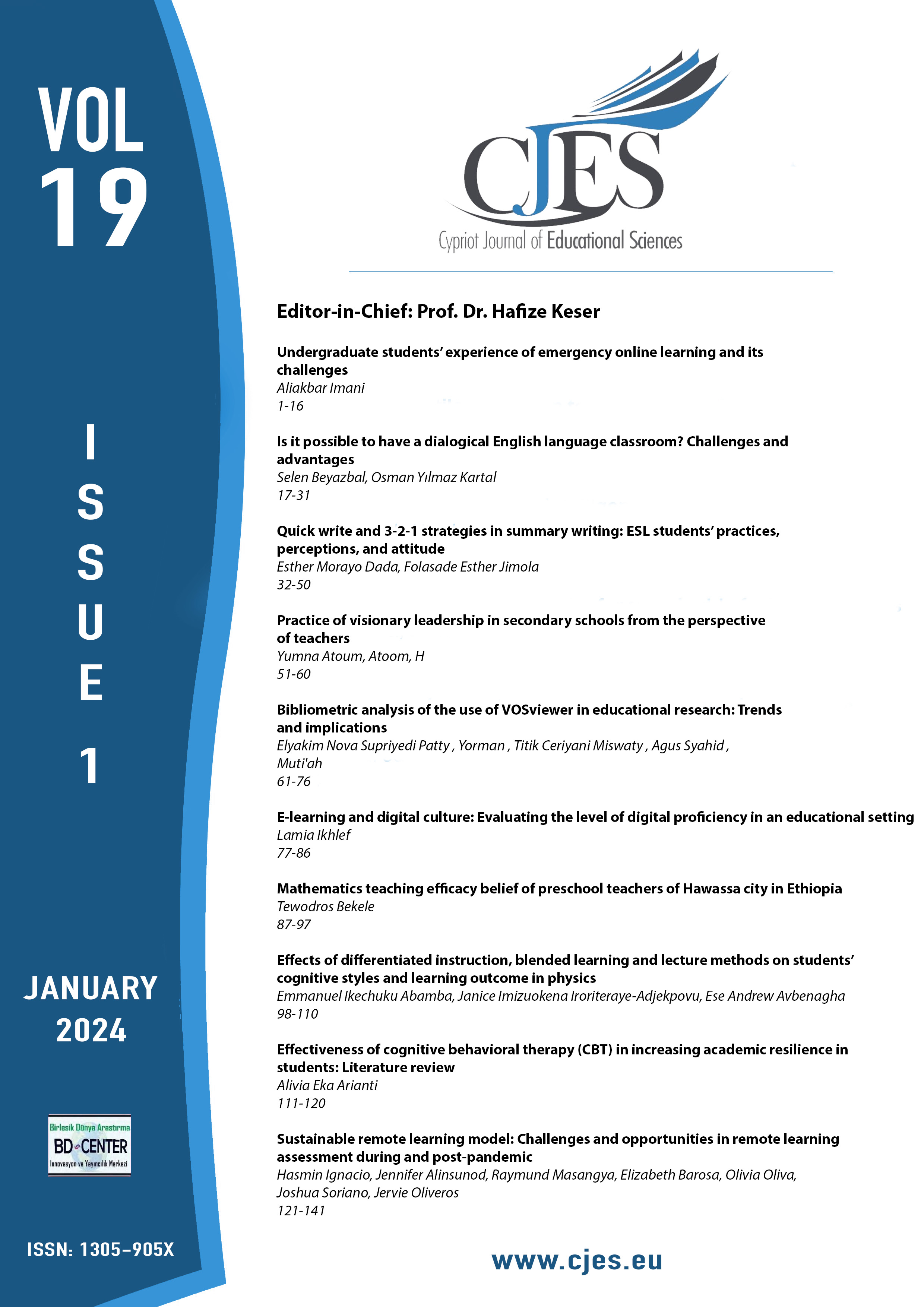Quick write and 3-2-1 strategies in summary writing: ESL students’ practices, perceptions, and attitude
Main Article Content
Abstract
ESL students’ limited knowledge and probably, unawareness of suitable strategies for summary writing have translated into mostly strategic problems. Quick write and 3-2-1 are strategies that foster analytical minds in reading and writing. This paper examined students’ attitudes, performance, and knowledge retention in summary writing. A pretest-posttest-control group quasi-experimental design was employed in the study with two treatments. The sample consisted of 110 senior secondary school II students. Three instruments, a questionnaire, a semi-structured interview, and a summary writing performance test were used for the study. The research findings showed significant improvement in students’ performance and knowledge retention in summary writing. However, findings revealed that there is no significant main effect of treatment on students’ attitudes to summary writing. This study concludes that quick writing and 3-2-1 strategies are effective in enhancing students’ performance and knowledge retention in summary.
Keywords: Attitude; perceptions; performance; quick write; retention; summary writing; 3-2-1
Downloads
Article Details

This work is licensed under a Creative Commons Attribution 4.0 International License.
Cypriot Journal of Educational Sciences is an Open Access Journal. The copyright holder is the author/s. Licensee Birlesik Dunya Yenilik Arastirma ve Yayincilik Merkezi, North Nicosia, Cyprus. All articles can be downloaded free of charge. Articles published in the Journal are Open-Access articles distributed under a CC-BY license [Attribution 4.0 International (CC BY 4.0)].
Birlesik Dunya Yenilik Arastirma ve Yayincilik Merkezi (BD-Center)is a gold open-access publisher. At the point of publication, all articles from our portfolio of journals are immediately and permanently accessible online free of charge. BD-Center articles are published under the CC-BY license [Attribution 4.0 International (CC BY 4.0)], which permits unrestricted use, distribution, and reproduction in any medium, provided the original authors and the source are credited.

